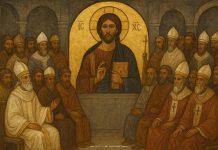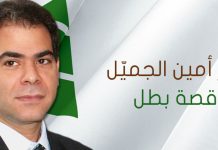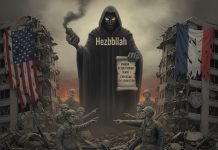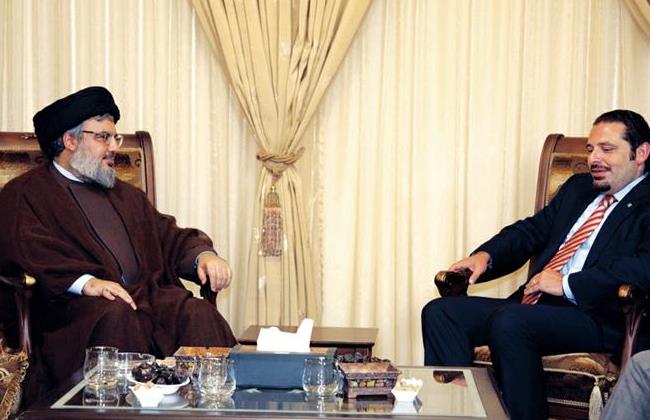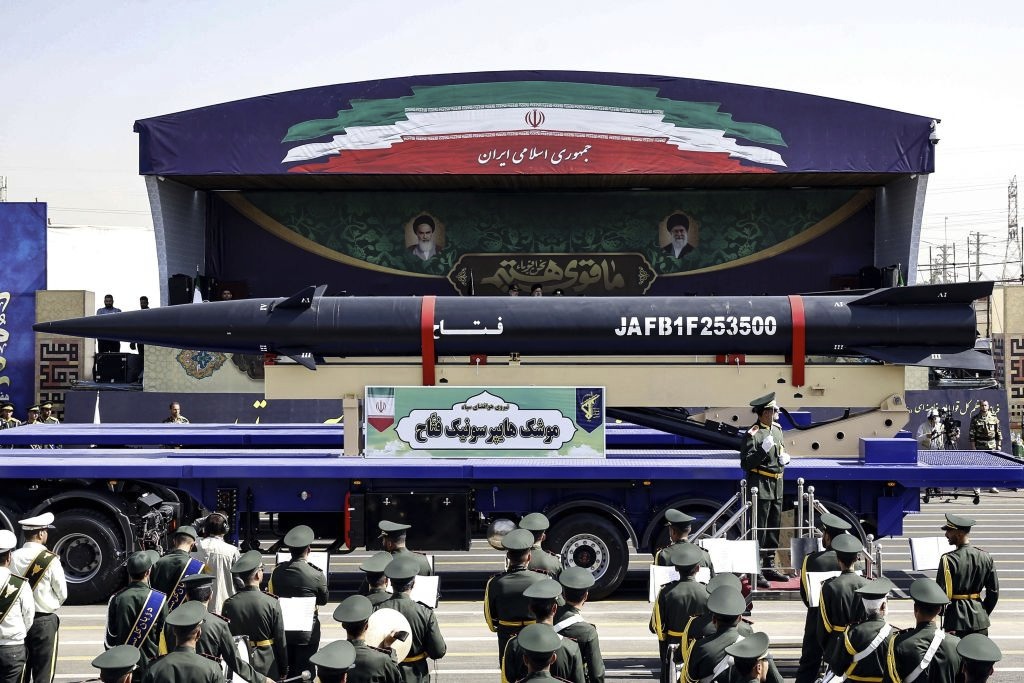What Does Hezbollah’s Election Victory Mean for Lebanon?
هذا ما يعنيه انتصار حزب الله في الانتخابات النيابية اللبنانية
Hanin Ghaddar/The Washington Institute/May 08/18
The group has made further strides toward remaking state institutions in its image, but the international community can still slow the group’s momentum by pressuring its domestic political enablers.
On May 6, Hezbollah and its political allies won more than half the seats in Lebanon’s first parliamentary elections in nine years. While the group’s own tally did not change much (13 seats out of 128 total), gains by the Amal Party, Free Patriotic Movement, and other allies mean that Hezbollah will play a bigger role in the next government. Leading a coalition that holds a simple majority in parliament will boost the group politically and strengthen its chances of legitimizing its arms without any considerable challenge.
THE ASSAD REGIME RETURNS TO LEBANON
When Bashar al-Assad withdrew his troops from Lebanon in 2005, several prominent players in the Syrian-dominated political and security establishment left Lebanese political life. Yet Hezbollah’s electoral momentum has given them an opportunity to return to the stage.
At least five figures who held office during the nearly two-decade Syrian occupation won seats in the new parliament, including Jamil al-Sayyed, a retired Shia general and former intelligence chief who was one of the country’s most powerful men at the time. He will enter the legislature despite being sentenced to prison briefly for his involvement in the 2005 assassination of former prime minister Rafiq Hariri, an act that international authorities have linked to Hezbollah. Faisal Karami, son of the late pro-Syrian prime minister Omar Karami, also won a seat for the first time.
These figures will undoubtedly leverage their connections with the Assad regime to further empower Hezbollah, especially given Iran’s growing role in Syria and continual reliance on the group as its top proxy. They will also try to bring Lebanon’s state institutions closer to Syria’s on key issues such as refugees and security.
LOW TURNOUT
Only 49.2 percent of 3.6 million eligible voters turned up at the polls, compared to 54 percent in 2009. The low turnout was partly a product of a complicated new electoral law that required citizens to vote for whole party lists at a time of new and somewhat odd electoral alliances. For example, in some districts Sunnis were forced to vote for the Free Patriotic Movement—a Christian party and traditional electoral rival—if they wanted Sunni leader Saad Hariri to win another term as prime minister, since Hariri’s Future Movement was paired with the FPM on the ballot.
Moreover, many voters did not seem to believe that elections would lead to positive change. In the past, the Hariri-led “March 14” coalition represented a pro-West, anti-Hezbollah perspective, but the bloc has been compromising with its adversaries more often of late and cynically preserving the status quo.
This may help explain why Hariri’s party suffered the election’s biggest blow, dropping around a third of its seats for a final tally of twenty-one. Hezbollah-backed Sunnis did much better, mainly in Beirut, Tripoli, and Sidon, securing ten of the twenty-seven Sunni-allocated seats. Tripoli Sunnis likewise rejected Ashraf Rifi, an outspoken Sunni detractor of Hezbollah who had won the city’s 2017 municipal elections. The overall results suggest that Lebanon’s Sunni community is deeply fractured due to weak leadership and Hezbollah’s skilled political maneuvering.
In the end, this development could prove to be Hezbollah’s biggest victory. It is no secret that the group has been recruiting Sunnis to its parallel domestic militia, the Resistance Brigades. As Hariri’s political and financial fortunes have waned, many Lebanese Sunnis have aligned with this affiliate, perhaps as an alternative source of income. Hezbollah also appears to have benefitted from Iran’s growing regional influence and the associated spike in Shia sectarian identity.
MOBILIZING THE SHIA BASE
Hezbollah and Amal managed to secure twenty-six of the parliament’s twenty-seven Shia-apportioned seats, easily defeating their most prominent opponents in the south and the Baalbek-Hermel region. Yet the low turnout suggests that many Shia stayed home—an unsurprising outcome despite their growing discontent with Hezbollah’s costly war in Syria. No unified anti-Hezbollah coalition emerged with a clear message to mobilize disaffected Shia. Opposition candidates in the south focused on traditional political messages, while Beqa-area candidates focused on development issues; none of them had the temerity to criticize Hezbollah’s “resistance” agenda.
Worse, none of these rivals presented a serious economic and social alternative to Hezbollah. This was a major missed opportunity because the group’s regional military operations have eaten up some of the funds it usually devotes to social services and economic projects for its Shia constituents.
Perhaps the most important factor in Hezbollah’s victory, though, was growing sectarian rhetoric. Although many Shia criticized the group’s foreign adventurism in past years, these detractors became less vocal once the Assad coalition scored a string of major victories in Syria, which resulted in fewer Lebanese returning home in body bags, a steadily solidifying “land bridge” to Iran, and a heightened emphasis on Shia identity throughout the region. As the war in Syria draws down, Hezbollah has reemerged as the protector of the Shia.
DOMESTIC POLITICAL IMPLICATIONS
Despite its reduced seat tally, Hariri’s party still represents the biggest Sunni bloc in the parliament, so he may yet return as prime minister if he secures a majority via coalition-building. This seems likely given his seemingly excellent relations with the FPM and the promises he has reportedly received from Amal leader Nabih Berri and other Hezbollah allies.
Yet the key question is whether he can form a politically balanced government that is willing and able to limit Hezbollah’s prerogatives. With a smaller party seat tally and no opposition allies, Hariri will be a much weaker prime minister this time around. The Christian party “Lebanese Forces” is the only faction that managed to increase its seats (from eight to fifteen) while preserving its anti-Hezbollah rhetoric, but Hariri alienated party leader Samir Geagea by accusing him of supporting the resignation/retraction debacle reportedly orchestrated by Saudi Arabia last year.
Currently, Hariri appears more inclined to nurture his new alliance with Gebran Bassil of the FPM, the son-in-law of President Michel Aoun. Some in Washington believe this team-up will prove beneficial, creating a new parliamentary bloc and political movement that could challenge Hezbollah. Yet this seems unlikely because Aoun and other FPM leaders have been consistently loyal to Hezbollah since he became president in 2016.
HOW TO SLOW HEZBOLLAH’S MOMENTUM
On May 7, Hezbollah leader Hassan Nasrallah declared the elections “a great moral and political victory for the resistance choice that protects the country.” He added that the group needed larger representation in the parliament “to ensure security protection for the resistance” and achieve its “electoral program.” Although it did not get the two-thirds majority needed to refashion constitutional pillars such as sectarian power-sharing, the simple majority will allow it to make other important decisions on security appointments and government formation.
Yet Hezbollah was only able to reach this position of political strength by partnering with allies who have never been punished for associating with a designated terrorist group and its supposed political “wing.” In fact, the international community has rewarded these allies—Aoun became president with Europe and Washington’s blessing, and the electoral law that facilitated this weekend’s results passed without international pressure.
To minimize the damage in the coming weeks and help contain an ascendant Hezbollah, the international community should try to foster political balance in Lebanon. The March 14 alliance is dead and its leadership seems resigned to continual compromises, but other channels of opposition can still be cultivated—provided they offer a real economic and social alternative to the Lebanese people, including the Shia community.
At the same time, foreign actors need to impose a price on Hezbollah’s domestic political allies. The group no longer has to use its arms to enforce its agenda at home; instead, it can rely on its allies to make favorable decisions within state institutions. These allies, including Berri and Aoun, should be pressured, particularly if they allow Hezbollah and Iran to have their way in Lebanon. If they act as enablers to internationally designated entities, then they should be treated as such.
*Hanin Ghaddar, a veteran Lebanese journalist and researcher, is the Friedmann Visiting Fellow at The Washington Institute.

